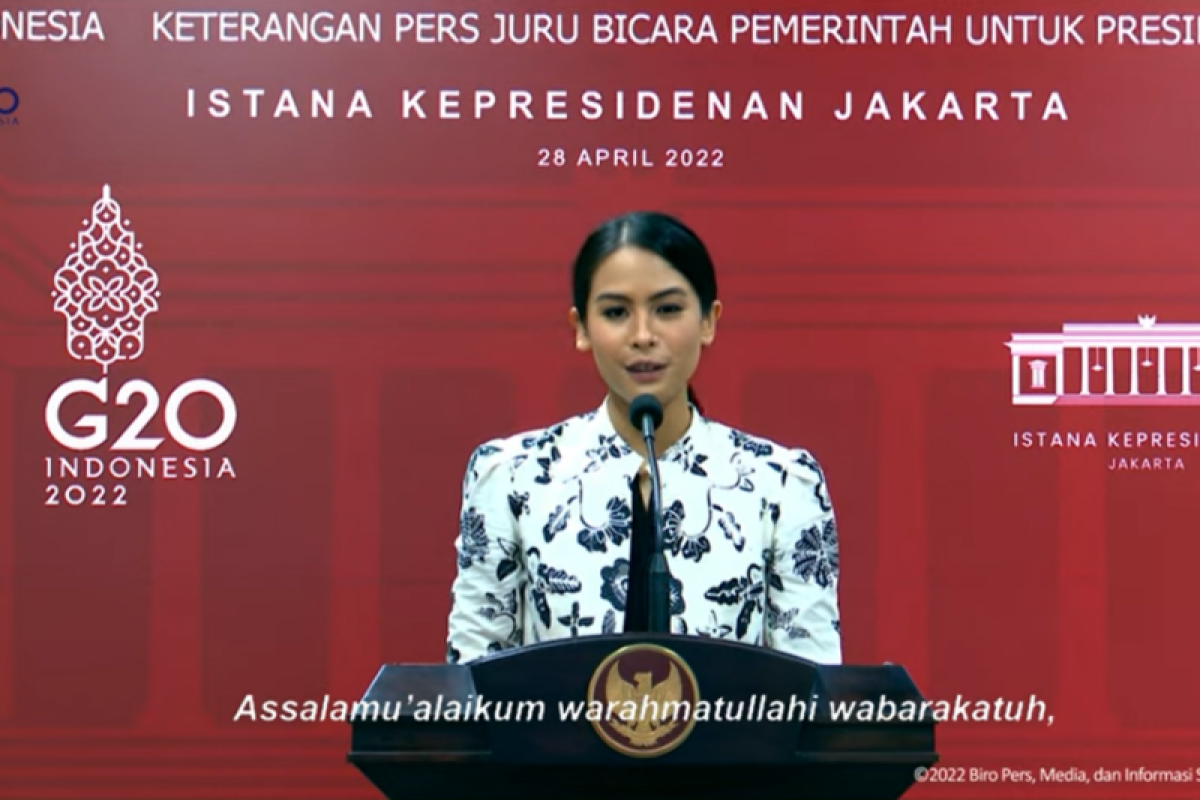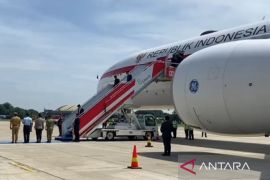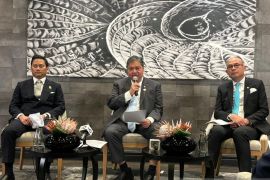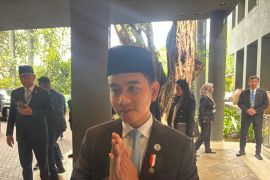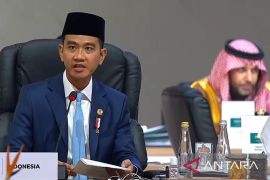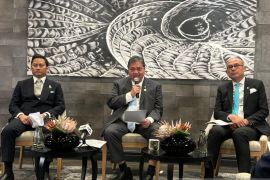Ayunda explained that the government had launched several programs, though still lacking the participation of several people to realize an increase in digital financial literacy, especially for youngsters to productively utilize the digital platform.
“There are many more programs that the government is collaborating with several parties to improve digital literacy and digital finance. However, of course, there is still room for more action," Ayunda noted in her press statement.
The spokesperson also remarked that the COVID-19 pandemic accelerated the rapid rise of digitization in the country.
Several services, which earlier could only be accessed directly, can now be obtained online from various service sectors, such as transportation, health, and finance.
With the strong power of digitalization, post-pandemic economic recovery can actually be achieved.
Moreover, data from the Statistics Indonesia (BPS) showed that the percentage of productive youth in the country had currently reached more than 52 percent.
“Imagine if all young people were digital literate. With this number, it would certainly become a snowball effect to advance the nation," she remarked.
Even so, there were still big challenges to tackle since there was a gap in the country’s infrastructure, including uneven internet access.
Based on research by Indonesia Youth Diplomacy and Cint 2021, as many as 61 percent of young people in G20 member countries are still experiencing difficulties in digitalization, such as internet access, unstable and slow connections, or unaffordable price issues.
Another data from World Bank reported that the average Indonesian spent six to nine hours on activities in cyberspace.
"However, only three percent of them have commercial value. We are clearly using the internet a lot, though not enough online transaction,” she remarked.
Hence, it is important to strengthen digital literacy and digital finance among young people to hone their skills and their business knowledge apart from providing myriad benefits in the future.
Digital financial literacy is also expected to facilitate and secure transactions and data processes in the digital world.
This becomes increasingly important, as the World Bank data shows that 59 percent of Indonesians still do not have access to finance and are unaware of the benefits of using digital financial services.
"This is why we need to encourage digital awareness, so that more people and young people can immediately gain the benefits,” Ayunda noted.
The Indonesian government has worked actively to overcome the gap and open access to digital literacy, including digital finance.
In terms of infrastructure, the Ministry of Communication and Informatics had provided fiber optic communication network throughout Indonesia with the 2019 Palapa Ring project to nationally accommodate the public's needs.
The ministry had also built Base Transceiver Station (BTS) towers to facilitate wireless communication between networks and devices, especially in the outermost, remote, and underdeveloped (3T) regions, that is currently being pursued.
In addition, the government provides various programs related to digital literacy and digital financial literacy.
For basic skills, the government provides provisions in the form of the National Digital Literacy Movement.
Meanwhile, for the specific discussion of digital finance, the Government, through the Financial Services Authority (OJK), presents "Digital Financial Literacy."
However, further real collaboration and support from more parties is deemed necessary to achieve digital and financial literacy for the younger generations in Indonesia.
This problem is not only experienced by Indonesia but also by other developing countries in the world.
The Youth 20 Forum (Y20), attended by young people from G20 member countries, became one of the forums to discuss global issues to find better solutions in overcoming the problem of digital financial literacy.
During its Presidency in the G20, Indonesian representatives for Y20 have also been active in holding discussions in several forms, including one of the pre-second summits that took place in Lombok, West Nusa Tenggara.
In the pre-summit, digital financial literacy became one of the priority topics discussed to produce real solutions for the future of the world.
Ayunda also praised the Indonesian delegates’ participation in the Y20 Pre-Summit while lauding their commitment to advancing the world in a better direction.
"On this occasion, I laud the young people of Y20 for upholding the value of diversity and inclusion in their activities. I really feel the spirit of Bhineka Tunggal Ika and the commitment to ensure that the Youth discussion at the G20 does not become something exclusive," she affirmed.
The highlight of the 2022 Y20 Indonesia meeting is the Y20 summit that is planned to be held in July 2022 at two locations: in Jakarta and Bandung, West Java.
Prior to the summit, a pre-summit will be held in May 2022 in Balikpapan, East Kalimantan, and in June 2022 in Manokwari, West Papua. The issues to be brought up are youth employment, digital transformation, a sustainable and livable planet, and diversity and inclusion.
Related news: BNI plans digital banking service to help MSMEs enter global market
Related news: Indonesia urges G20 nations to have digital literacy index
Related news: Millennials, Gen Z should be able to optimize productivity: President
Translator: Livia Kristianti, Resinta S
Editor: Sri Haryati
Copyright © ANTARA 2022
